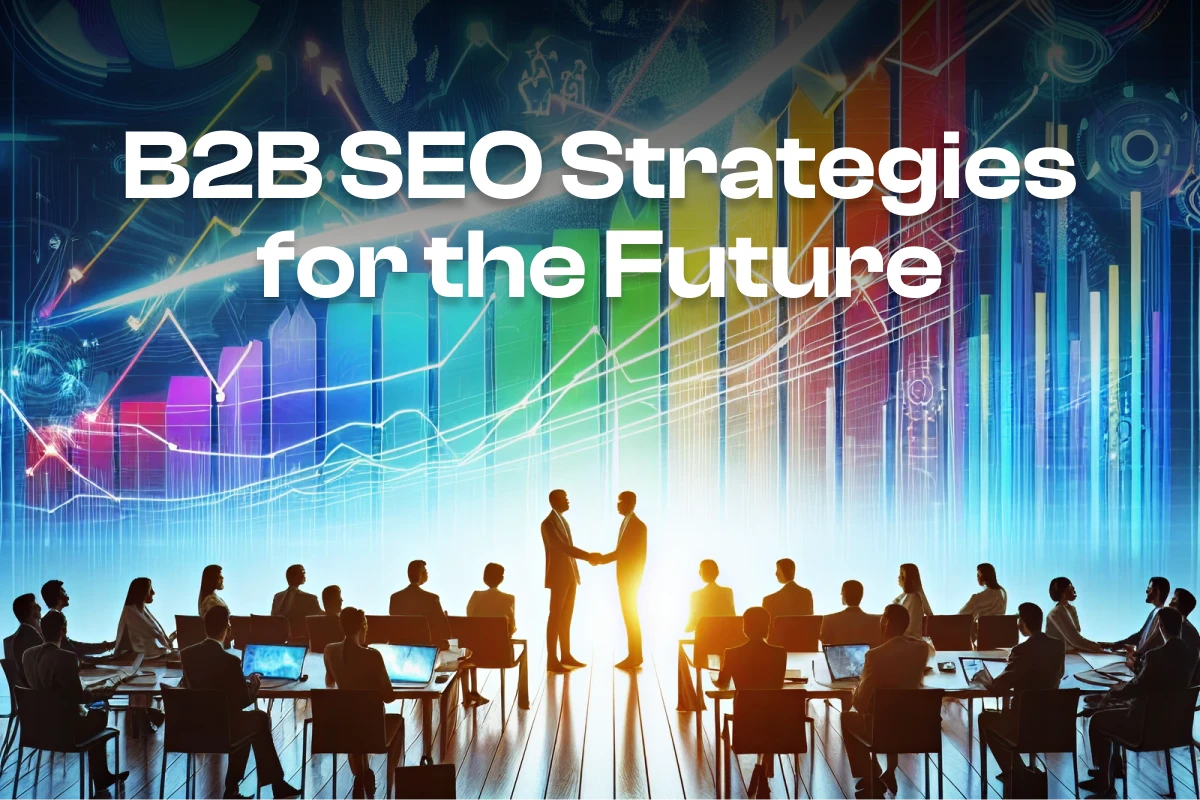
The digital landscape is evolving faster than ever. For B2B brands, staying visible isn’t just about traditional search rankings anymore. With AI-driven platforms like ChatGPT, Perplexity, and Google SGE, content discovery and ranking are being reshaped. AI SEO and LLM SEO strategies are now critical for staying competitive.
In this blog, we explore the latest B2B SEO trends, how to optimize for AI search results, and practical steps for brands to succeed in an AI-first SEO world.
Why AI is Changing B2B SEO
AI-powered search engines are redefining how users find information. Large language models (LLMs) summarize content from multiple sources, often providing answers directly in search results.
For B2B marketers, this shift presents both challenges and opportunities:
- Traditional SEO metrics still matter, but AI search optimization is becoming equally important.
- Understanding semantic SEO in AI-first search ensures your content aligns with user intent.
- Businesses need to optimize both content and technical foundations to remain discoverable.
The brands that adapt fastest will lead in this new era. For B2B companies looking to combine traditional SEO practices with modern AI-first strategies, The QA offers expert SEO solutions. From site architecture to content strategy and technical optimization, The QA helps B2B websites improve visibility, engagement, and authority.
How B2B Brands Should Adapt SEO Strategies for AI Search Results
Optimizing for AI is more than a tweak—it’s a strategic shift. Here’s how B2B brands should adapt SEO strategies for AI search results:
1. Build an AI-Ready Site Architecture
A clean, accessible structure is essential. AI-ready site architecture includes:
- Logical hierarchy and internal linking
- Fast-loading, mobile-friendly pages
- Proper canonicalization
These elements not only enhance user experience but also help LLMs interpret and rank your content effectively.
2. Implement Schema Markup
Structured data is crucial in an AI-first world. Adding schema markup improves the chances of appearing in AI Overview rankings, giving your content greater visibility and credibility.
3. Optimize Content for AI Overviews
Keywords alone aren’t enough. Successful B2B content should:
- Provide clear answers to common questions
- Incorporate semantic SEO to match intent
Include interactive content, like tools, calculators, or infographics, which boost engagement and CTR optimization
Crafting an AI-First Content Strategy
Prioritize Quality and Authority
An AI-first content strategy focuses on creating content that LLMs recognize as authoritative. Best practices include:
- Producing comprehensive guides and thought leadership content
- Using headings, bullet points, and summaries for clarity
Regularly updating content to remain relevant in AI Overview ranking
Boost Engagement
Even with AI summaries, clicks matter. Improve B2B content SEO and CTR by:
- Optimizing meta titles and descriptions
- Using structured data for rich snippets
Incorporating interactive content to increase dwell time and engagement
Technical SEO for LLM Optimization
AI-driven search still relies on strong technical foundations. A technical SEO checklist for AI-driven search should include:
- Fast site speed and optimized Core Web Vitals
- Proper indexing and crawlability
- HTTPS security and canonical URLs
Aligning technical SEO for LLM optimization with your content strategy ensures your B2B site performs well in AI-powered search results.
Ranking in ChatGPT, Perplexity, and Google SGE
To appear in AI-driven search:
- Provide authoritative, well-cited content
- Structure pages for snippet-friendly responses
Keep content up-to-date for accuracy and relevance
Best Practices for B2B SEO in an AI-First World
Adapting to AI-driven search requires a multi-layered approach. Here are the most effective best practices for B2B brands to stay ahead:
1. Audit and Update Existing Content
Before creating new content, evaluate your existing pages:
- Identify high-performing pages that can be enhanced for AI visibility.
- Update outdated information, statistics, and references to maintain credibility.
Use semantic SEO to improve content context, ensuring AI understands the meaning and intent, not just keywords.
2. Implement AI-Ready Site Architecture
A clear and accessible website structure helps both users and AI systems navigate your site efficiently:
- Use a logical hierarchy with clear categories and subcategories.
- Ensure every page is accessible within a few clicks from the homepage.
Optimize URLs, breadcrumbs, and internal linking to help AI index and rank your pages effectively.
3. Leverage Schema and Structured Data
Structured data provides AI models with rich context about your content:
- Add FAQ schema for common B2B questions.
- Use product/service schemas to highlight offerings.
Implement article or blog schemas to improve visibility in AI-generated summaries and overviews.
4. Create AI-First Content
Content should be crafted not only for human readers but also for AI systems:
- Provide clear, concise answers to potential queries.
- Use headings, subheadings, bullet points, and summaries to make content scannable.
Include interactive content for B2B SEO, such as calculators, tools, or infographics, which can increase engagement and dwell time.
5. Optimize for CTR and Engagement
Even in AI-driven search, clicks still matter:
- Write compelling meta titles and descriptions that encourage clicks.
- Use rich snippets and structured data to stand out in search results.
Test different calls-to-action to see what drives the highest engagement.
6. Focus on Technical SEO for LLM Optimization
Technical SEO ensures AI can accurately crawl, index, and understand your website:
- Optimize site speed and Core Web Vitals.
- Ensure mobile responsiveness and HTTPS security.
Regularly audit for broken links, duplicate content, and indexing issues.
7. Monitor AI Search Performance
Tracking performance in AI-driven search helps refine your strategy:
- Use analytics tools to monitor which content AI models reference in overviews.
- Track changes in CTR, traffic, and engagement after implementing AI-focused strategies.
Continuously experiment with content structure, FAQs, and schema to see what AI systems prioritize.
The future of B2B SEO is undeniably AI-driven. Brands that adopt AI-first content strategies, and technical SEO for LLM optimization will outperform competitors in visibility, engagement, and authority.
By combining traditional SEO expertise with modern AI-first practices, B2B companies can ensure their websites are both discoverable and authoritative in an AI-first world.